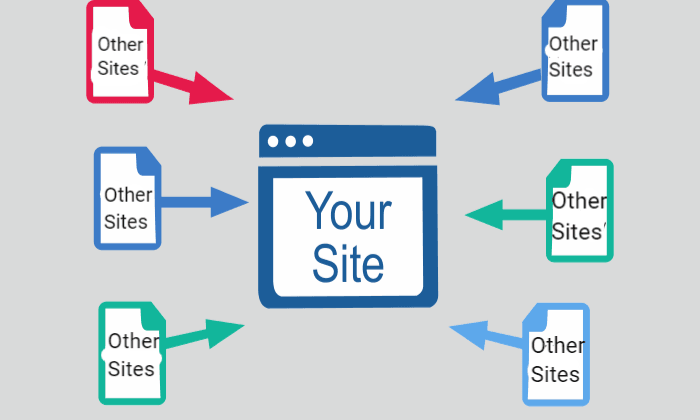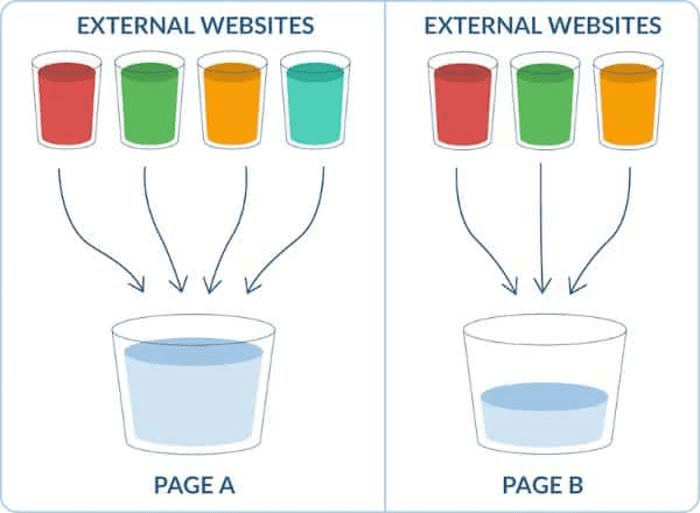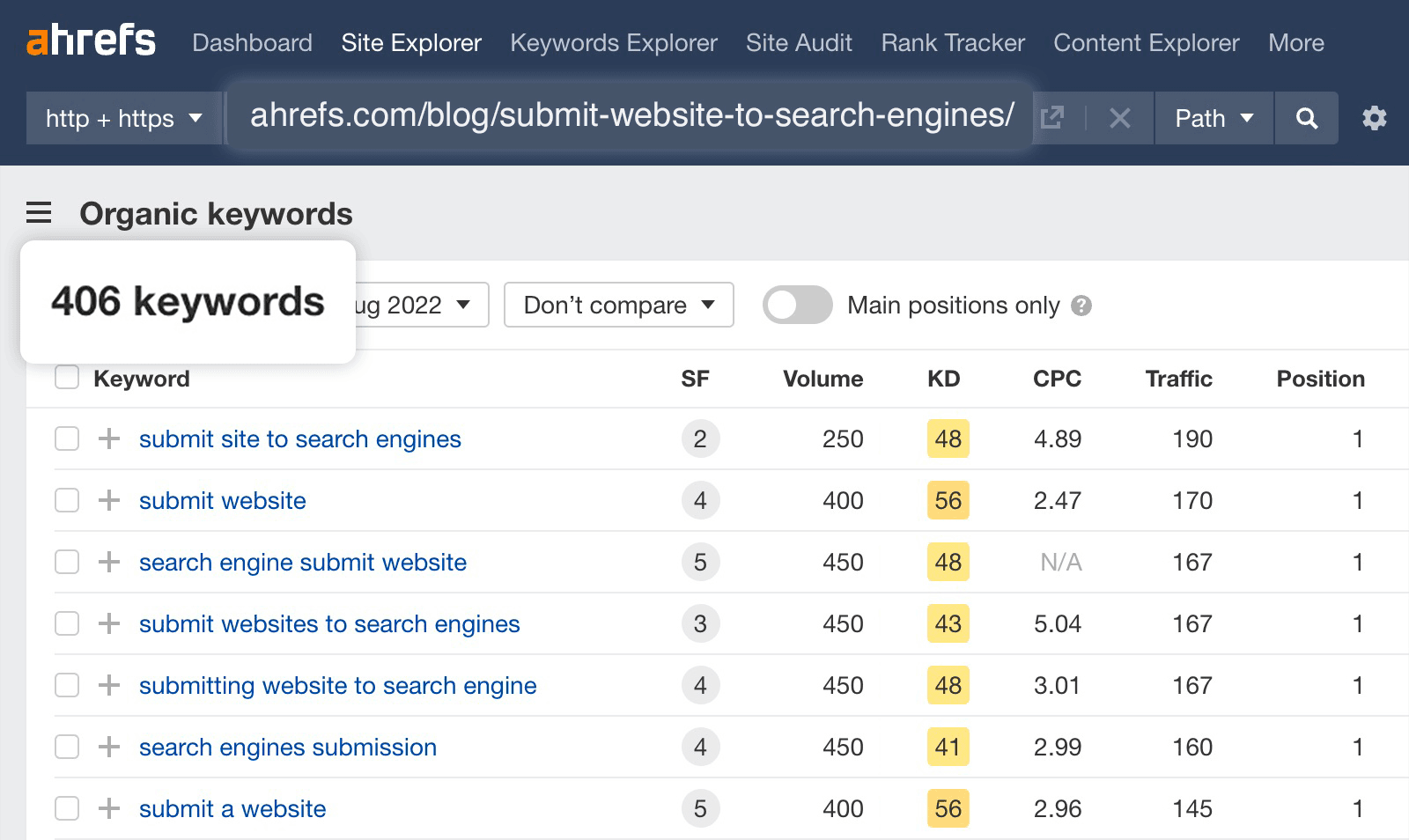SEO link building is a vital strategy for improving website rankings and driving traffic. It involves acquiring backlinks from other sites, signaling authority to search engines. At Keyword Metrics, we break down this essential SEO technique to help boost your online presence.
What is Link Building?
SEO link building is the process of acquiring hyperlinks from other websites to your own. These links are often referred to as "backlinks," and they are crucial for SEO (Search Engine Optimization) because they help search engines determine the credibility and authority of your website. The more quality backlinks your website has, the more likely it is to rank higher in search engine results pages (SERPs).
Link building is a core element of SEO strategies aimed at improving visibility and driving organic traffic to a website. While link building might seem like a straightforward task, it requires careful planning, strategy, and understanding of the best practices in SEO.
How Link Building Works in SEO
When a website links to your page, it's essentially a vote of confidence for the content you provide. Search engines like Google use these votes (backlinks) to evaluate how trustworthy and valuable your website is. Here's how it works:
- Link Discovery: Other websites must discover your content in order to link to it. This could happen naturally if your content is valuable or through proactive outreach efforts.
- Crawling and Indexing: Once a link is found, search engines crawl the page where the link is placed and index it in their database. This helps Google and other search engines understand the relationship between different web pages.
- Passing Authority (Link Juice): Backlinks from high-authority sites pass "link juice," which essentially refers to the SEO value they transfer to your website. This is why backlinks from reputable sites are so valuable in SEO.

For example, if a popular blog in your industry links to your website, this signals to Google that your content is relevant and valuable, which can help boost your rankings.
Importance of Link Building in SEO
Link building is crucial for a number of reasons:
Improves Search Engine Rankings
The number and quality of backlinks pointing to your site directly impact your rankings in search engines. Quality backlinks indicate to search engines that your content is authoritative, which can help improve your website's visibility.
Drives Referral Traffic
Aside from improving SEO, backlinks can drive traffic directly from other websites. If someone clicks on a link to your site from a reputable source, this can lead to a steady stream of referral traffic, which can be valuable for generating leads or sales.
Establishes Website Authority
Consistently acquiring high-quality backlinks helps establish your website as an authority in your niche. Over time, search engines begin to view your site as trustworthy and relevant, which can result in better long-term rankings.
For instance, a well-known resource site like Wikipedia linking to your page could significantly boost your website’s authority.
Tools for SEO Link Building and How They Help
Using the right tools can make your link-building efforts more efficient and effective. Here are some popular tools that can assist in identifying backlink opportunities, tracking your link-building progress, and ensuring you’re following best practices:
Ahrefs
Ahrefs is one of the most widely used SEO tools for link building. It helps you analyze backlinks to your website and identify high-quality link opportunities from competitor websites. Ahrefs’ “Backlink Checker” feature allows you to monitor your link profile, find broken links, and analyze the strength of your backlinks.
- Discover competitor backlinks for link-building opportunities.
- Monitor your website’s link profile and prevent harmful links.
- Identify broken link building opportunities.
Moz Link Explorer
Moz’s Link Explorer provides detailed reports on your backlinks and allows you to track link-building progress. It offers useful metrics like Domain Authority (DA) to help identify the strength of backlinks, which can influence your link-building strategy.
- Analyze link profiles and find new link-building opportunities.
- Evaluate the quality of backlinks using Domain Authority and Page Authority metrics.
- Track lost and broken links to ensure a healthy backlink profile.
BuzzSumo
BuzzSumo is an excellent tool for content research and identifying backlink opportunities. It helps you discover the most shared content in your niche, which you can use as a basis for creating your own valuable content that others will want to link to.
- Find popular content in your industry to inspire link-building content.
- Identify influencers who might be interested in linking to your content.
- Analyze competitors’ most linked-to content for backlink opportunities.
Google Search Console
Google Search Console provides valuable data about your website’s performance in search results, including the backlinks pointing to your site. It’s a free tool that allows you to monitor your link profile, submit new links, and disavow harmful backlinks.
- Monitor your backlink profile directly from Google’s perspective.
- Identify any potentially harmful backlinks that could affect your rankings.
- Keep track of any manual penalties related to link-building violations.
Pro Tips for Link Building Effectively
Building backlinks is a skill that requires strategic planning. Below are some actionable tips for using SEO link building effectively:
Focus on Quality, Not Quantity
It’s better to have a few high-quality backlinks from authoritative sites than many low-quality links from spammy websites. High-quality links come from reputable sites in your industry or niche.
Use Guest Posting
One of the most effective strategies for link building is guest posting. By contributing a well-written article to a reputable blog or website in your industry, you can include a link back to your website. Ensure that the content is valuable to the audience and relevant to your niche.
Create Shareable Content
Develop content that others will want to link to naturally. This could include detailed guides, infographics, original research, or case studies. Content that provides value is more likely to be shared and linked back to by others.
Engage in Outreach
Reaching out to other website owners, bloggers, or influencers in your industry can help you gain backlinks. Personalize your outreach messages and offer value to the other party, whether through collaboration, co-creating content, or offering something useful in exchange.
Fix Broken Links
Finding broken links on reputable websites and suggesting your content as a replacement is a great way to earn backlinks. Use tools like Ahrefs or Screaming Frog to identify these opportunities.
Examples of SEO Link Building in Action
Example 1: Blog Mentions
A fitness blog might link to a page on your nutrition website because you offer valuable content on healthy eating. This is a high-quality backlink that will drive traffic from the fitness blog's audience and boost your search rankings.
Example 2: Digital PR Campaigns
A digital marketing agency launches a PR campaign featuring an expert interview on a well-known industry website. As a result, multiple high-authority websites link back to the agency’s site, improving its online presence and rankings.
FAQs about SEO Link Building
Q: How do I get quality backlinks?
A: Quality backlinks can be earned by creating valuable content, engaging in guest posting, and reaching out to authoritative sites for collaboration or content placement.
Q: Can I build links too quickly?
A: Building links too quickly can be seen as unnatural by search engines and may result in penalties. Focus on gradual, sustainable link building efforts.
Q: Is link building against Google’s Webmaster Guidelines?
A: No, link building itself is not against Google’s guidelines, but manipulative practices like buying links or using link farms are. Focus on earning natural, high-quality backlinks for sustainable SEO growth.
Related Glossary Terms to Explore
- Backlinks: Link to a glossary page about backlinks to provide more detail on the term.
- Domain Authority: Link to a page explaining domain authority to provide context to readers.


